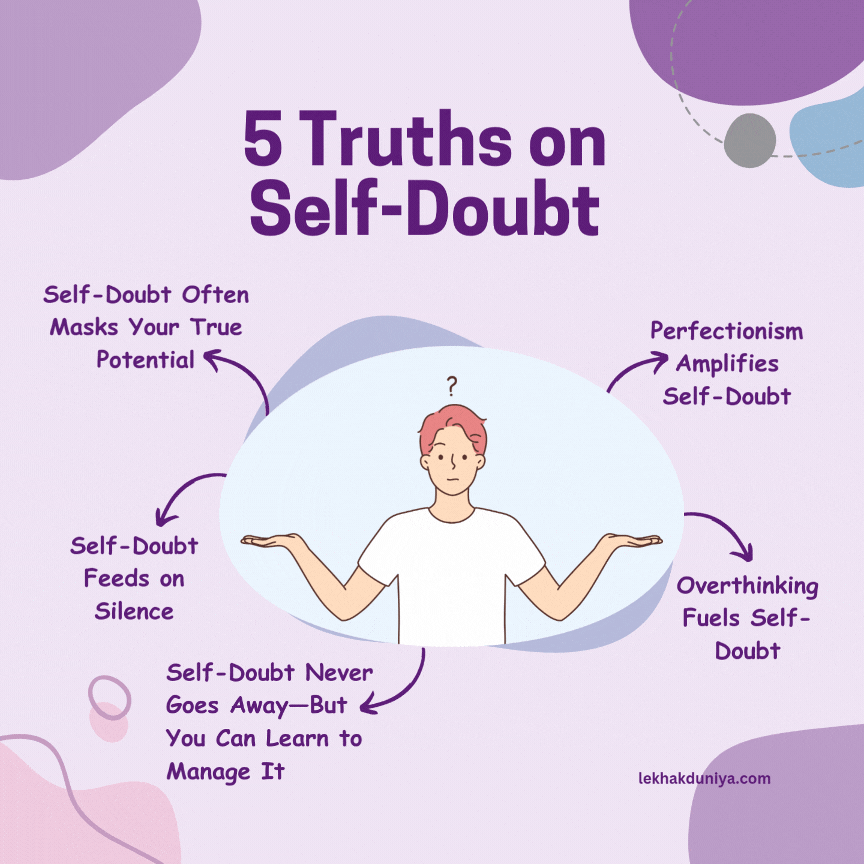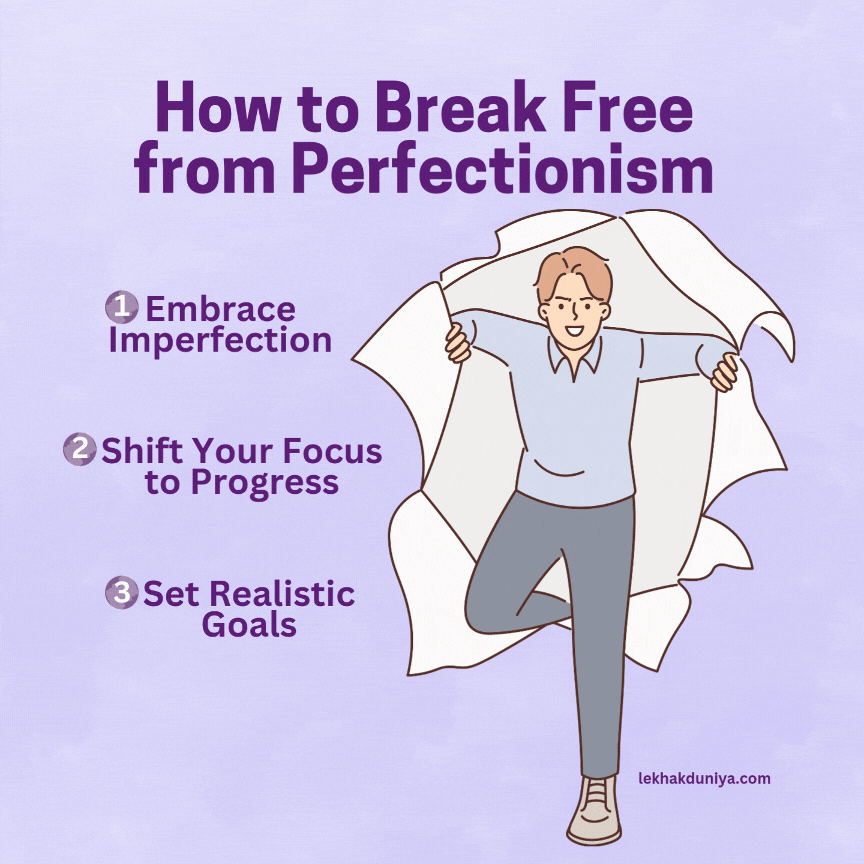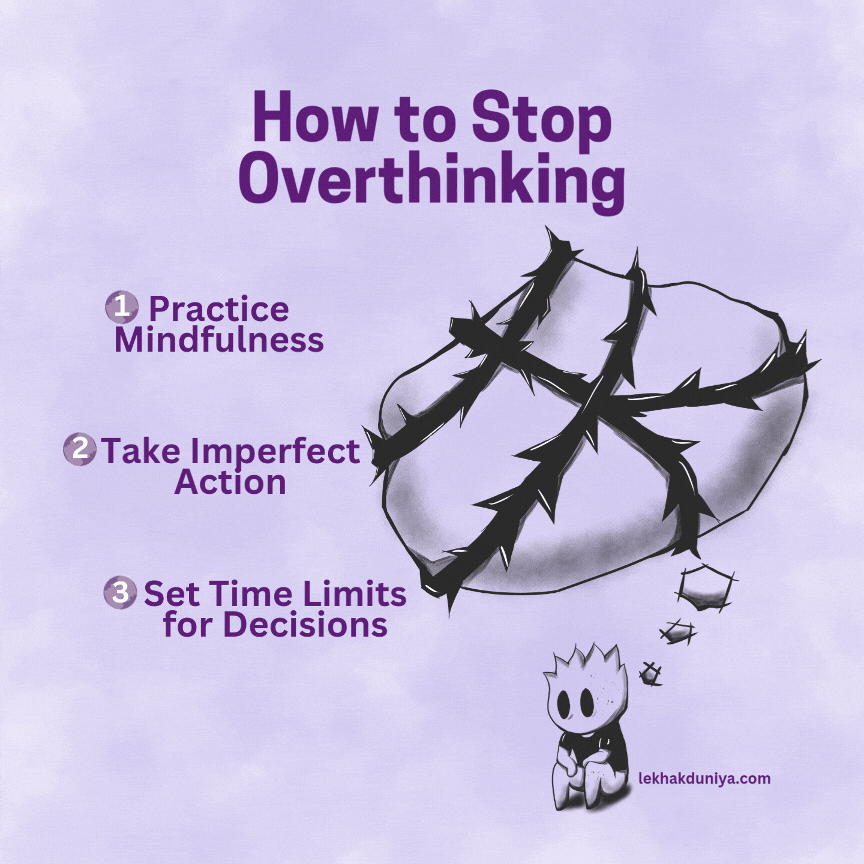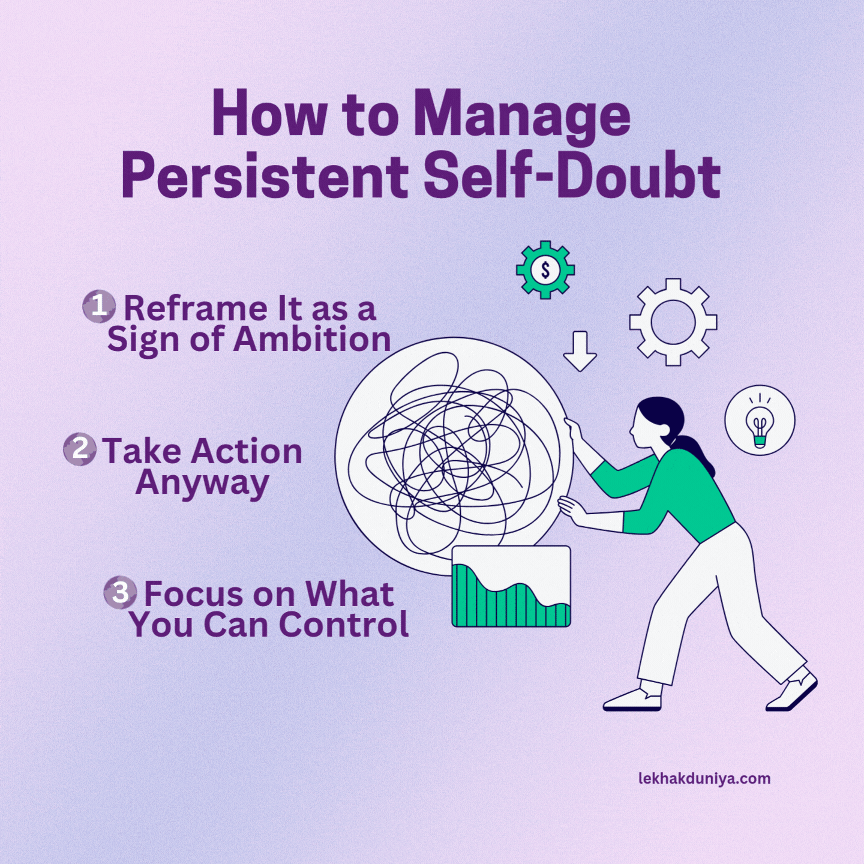Why Self-Doubt Controls Us
Have you ever felt like your best ideas weren’t good enough or hesitated to take action because you feared failure? That inner voice saying, “You can’t do this” is the loud, relentless sound of self-doubt. It’s something everyone faces—from students trying to excel in school to professionals climbing the corporate ladder and even entrepreneurs building their dreams.
Here’s the thing about self-doubt: it’s universal, but it feels deeply personal. While it’s normal to question yourself, truths about self-doubt become dangerous when it stops you from taking action or reaching your full potential.

The harsh truth? Self-doubt will never fully disappear. But that doesn’t mean it should take charge of your life or define your journey. The key is to understand the brutal truths about self-doubt, why it holds you back, and how to use it as a tool for personal growth.
In this blog, we’ll uncover five brutal truths about self-doubt and offer practical strategies to take control of your inner critic. Whether you struggle with overthinking, perfectionism, or fear of failure, this guide will show you how to stop letting self-doubt hold you back and start living boldly.
Table of Contents

Truth 1: Self-Doubt Often Masks Your True Potential
Self-Doubt Isn’t Weakness— It’s a Sign of Growth
One of the most shocking truths about self-doubt is that it shows up most strongly when you’re doing something that truly matters. You’re not doubting yourself because you’re unworthy or untalented—you’re doubting yourself because the stakes feel high. That’s why self-doubt tends to surface the most when you’re pushing beyond your comfort zone.
Consider this:
Some of the most successful people in the world have admitted to struggling with self-doubt. Despite her remarkable success as an author, Maya Angelou once admitted that every time she published a book, she felt a lingering fear, thinking, “Any moment now, they’ll realize I’ve been fooling them all along.”
This feeling is known as impostor syndrome, and surprisingly, it’s something that many people experience without even realizing it. When you care about something deeply, your fear of failure and self-doubt go hand in hand. The reality is, that the parts of your life where self-doubt hits the hardest are often the same areas where your greatest potential lies waiting to be unlocked.
Action Step:
The next time self-doubt creeps in, pause and ask yourself: “Am I doubting my abilities because I’m stepping into something new?” Don’t let self-doubt hold you back—take a small step forward today, and you might discover the path to your full potential.
Truth 2: Perfectionism Amplifies Self-Doubt
Why Chasing Perfection Keeps You Stuck
If you’ve ever delayed starting a project, rewritten the same email five times, or hesitated to share your ideas because they “weren’t ready,” then you’ve felt the destructive power of perfectionism. Other brutal truths about self-doubt? It thrives on perfectionism.
Perfectionism is the mindset that tells you everything you do must be flawless to be worthwhile. And when you inevitably fall short of these impossible standards, self-doubt swoops in, whispering: “You’re not good enough. You’ll never get this right.”
But here’s the thing: perfectionism isn’t a strength—it’s a trap. It keeps you stuck in a cycle of overthinking, procrastination, and fear. The longer you hold onto perfectionism, the stronger your self-doubt becomes.

How to Break Free from Perfectionism:
- Shift Your Focus to Progress: Instead of aiming for perfection, celebrate small wins and consistent improvement.
- Embrace Imperfection: Remind yourself that progress matters more than perfection. Perfection isn’t the goal—growth is. Treat mistakes as stepping stones, not setbacks.
- Set Realistic Goals: Perfection is unattainable, but progress is always within reach.
Example: Don’t aim for a flawless presentation—focus on delivering insights and genuine value that resonate with your audience. The people in your audience care more about your message than your slides.
Truth 3: Self-Doubt Feeds on Silence
Keeping Your Doubts to Yourself Makes Them Stronger
Self-doubt grows stronger when it’s left unspoken. One of the toughest truths about self-doubt is how much power it gains when you keep it to yourself. In the quiet corners of your mind, those negative thoughts start to feel real: “What if I’m not capable? What if I fail?”
But self-doubt loses its grip the moment you open up about it. Sharing your fears with someone you trust—whether it’s a close friend, family member, mentor, or therapist—helps you see your doubts in a new light.
Think about it: How many times have you admitted to a fear or insecurity, only to have someone respond, “I feel the same way”? That’s the power of vulnerability. By talking about your self-doubt, you strip it of its emotional weight.
Practical Tip:
If speaking up feels too hard, start by journaling your doubts. List all your worries on paper and take a moment to evaluate them. Ask yourself, “Is this fear grounded in reality, or am I letting my imagination run wild?” Once you’ve reflected, consider sharing your thoughts with someone you trust—it’s amazing how much relief comes from speaking your mind.
Truth 4: Overthinking Fuels Self-Doubt
Why Overthinking Keeps You Stuck
Overthinking and self-doubt go hand in hand. One of the harshest truths about self-doubt is that it loves to feed on endless “what if” scenarios: “What if I fail? What if people judge me? What if I’m just not good enough?”
This cycle of overthinking creates analysis paralysis—you get so caught up in worrying about potential outcomes that you end up doing nothing at all.
Here’s the brutal reality: Overthinking doesn’t protect you from failure. It keeps you stuck.

How to Stop Overthinking:
- Set Time Limits for Decisions: When faced with a choice, give yourself a set amount of time to think it through. Once the timer goes off, act.
- Take Imperfect Action: Focus on taking one small step forward, even if it’s not perfect. The action builds momentum and confidence.
- Practice Mindfulness: Use grounding techniques like deep breathing to bring your focus back to the present moment.
Example: Instead of spending hours analyzing whether to apply for a job, submit your application and trust yourself to handle the outcome.
Truth 5: Self-Doubt Never Goes Away—But You Can Learn to Manage It
The Key to Moving Forward Is Acceptance
One of the hardest truths about self-doubt is realizing that it’s not something you can fully eliminate. Even the most successful people still experience moments of doubt. Why? Because self-doubt is part of being human.
Our brains are wired to protect us from failure and rejection, so whenever you step into something new, self-doubt naturally follows. As you grow and take on bigger challenges, your doubts evolve too.
The key is to stop fighting self-doubt and start accepting it. When you see it as a natural part of growth, it loses its power over you.

How to Manage Persistent Self-Doubt:
- Reframe It as a Sign of Ambition: Self-doubt often shows up because you care about succeeding. Use it as motivation to push forward.
- Take Action Anyway: Confidence doesn’t come from waiting for self-doubt to vanish—it comes from doing the work despite your fears.
- Focus on What You Can Control: Instead of obsessing over “what ifs,” focus on the actions you can take right now.
Remember, self-doubt may always be with you, but it doesn’t have to hold you back.
Practical Strategies to Manage Self-Doubt
Now that we’ve explored the brutal truths about self-doubt, it’s time to take action. Let’s explore practical strategies you can use to tackle self-doubt and regain your confidence:

- Acknowledge It Without Judgment: Self-doubt doesn’t mean you’re failing—it means you’re growing. Recognize it as a natural part of your path to personal growth and self-improvement.
- Focus on Progress, Not Perfection: Appreciate every little milestone, no matter how minor it may appear. Each little victory adds up, strengthening your confidence one step at a time.
- Surround Yourself with Supportive People: Seek out friends, mentors, or communities that encourage you to believe in yourself.
- Take Action Despite Doubt: Confidence doesn’t appear on its own—you create it by taking action, one step at a time. Take small, intentional actions and watch your confidence build with every step forward.
Turn Self-Doubt into Your Strength
The biggest truth about self-doubt is that it’s not going anywhere. But rather than treating it as your opponent, recognize it as proof that you’re stepping into growth. Self-doubt arises when you care deeply about something—it’s a sign that you’re stepping into growth.
Self-doubt doesn’t have to stop you. You don’t need to completely silence fear to take the next step forward. You just need to take the first step, even with doubt in your heart. Every small win will build your confidence, quiet your inner critic, and move you closer to the life you want.
What truths about self-doubt resonate with you the most? Share your thoughts in the comments, and start taking bold steps today to build your confidence.




Gab Pretty! This has been a really wonderful post. Many thanks for providing these details.